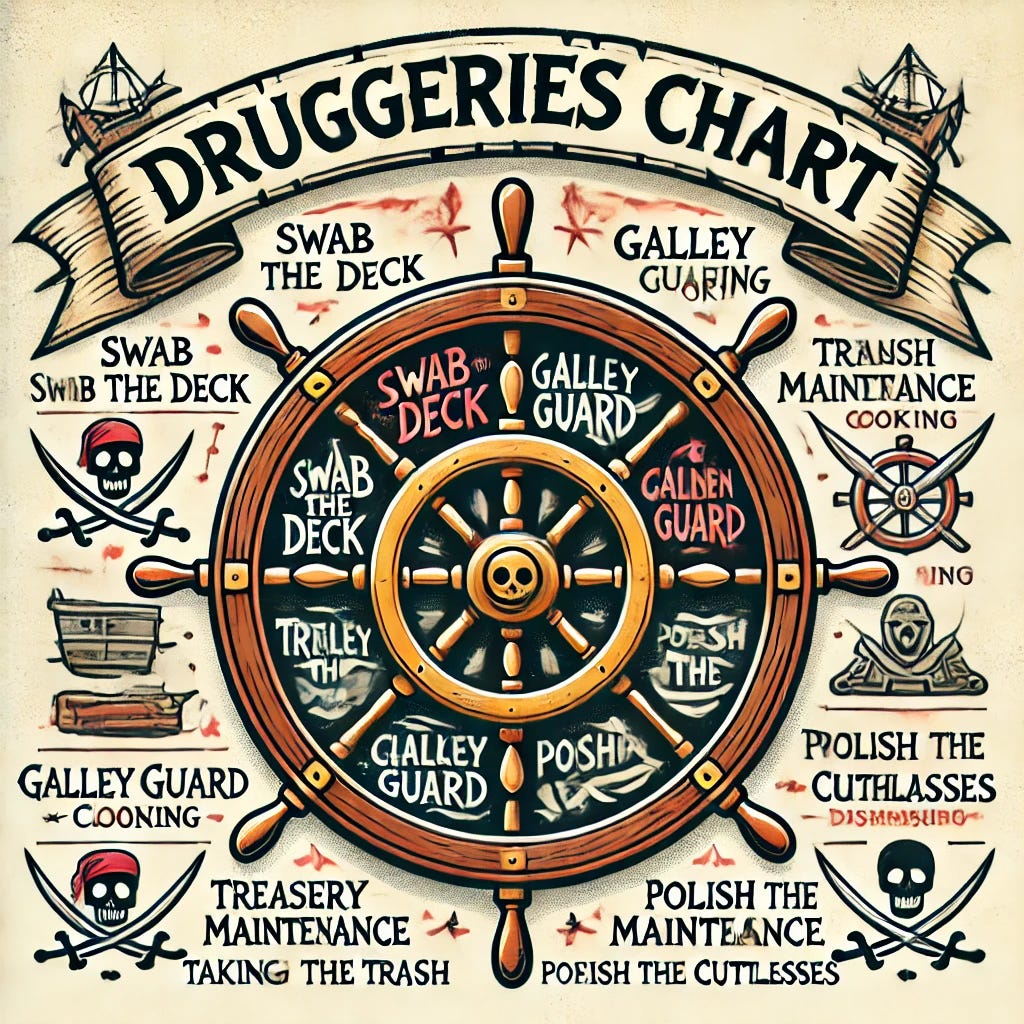Around 10pm a couple weeks ago, I thought to myself, “I’ve hacked adulthood.” I was in my living room with a close friend, who a day earlier, had become my housemate. She had her legs swung over the armchair while I lounged on the couch. I instinctively thought that she’d have to head home soon, and then I realized this is her home. We had basically signed up for an extended sleepover.
My other new housemate, a close friend who’d moved to DC specifically to test out living with my husband and me, planted himself in the swivel chair in the living room and joined our impromptu hangout. Why did no one tell me that adult life could look like this? That I could aspire to this?
These two housemates are new, but my husband and I have been living in this house for more than three years. Our previous housemates—two dear friends and their two children—moved out a couple months ago for jobs out of state. We knew from the beginning that our living situation would likely last no more than a few years and relished our time together. It would be impossible to recreate the home we had with those friends—coming home to a toddler jovially yelling my name, packing our friends into the tiny sukkah on our patio for dinner. But those years left a lasting impression, driving home for my husband and me that we thrive living in the close company of friends.
So rather than downsize into a place that fit just the two of us, my husband and I decided to keep renting our four-bedroom house—as long as close friends were available to live with us. Even though the two friends we now live with didn’t know each other before moving in, I already feel like we’re a unit, not just four people who happen to be sharing a shoe rack and frying pans. That cohesion has something to do with the playful spirit our house has embraced. Someone realized that our first initials combine into “ARRR,” which set off pirate themed antics. Our house on Swann Street, it was decided, would be called The Swann Ship.
At our first house meeting, one friend created an agenda doc and titled it “Captain’s Log.” As we got into the practicalities of maintaining the house, the other friend looked up what pirates would call “chores”—the answer is “drudgeries”—and added to the “Captain’s Log” a ChatGPT-generated image of a drudgeries chart. (ChatGPT images get weird when there are words involved).
He then played us a terrible AI-generated sea shanty/electronic song based on our respective drudgeries. Though I initially resisted the pirate theme (there were suggestions of pirate-inspired decor, which I was not down for), I came around and referred to all of us as “housemateys.”
This weekend, the four of us had dinner at a friend’s house, and as we went around the table telling stories, another thought crossed my mind: Living with these friends is going to make me smarter. I thought of how much I’m going to learn from one housemate’s experimental and entrepreneurial mindset. I hope I’ll absorb my other housemate’s emotional acuity and ability to analyze a complex problem. It’s not just their smarts that I expect to influence me. I’m witnessing their everyday habits that are making me rethink my own, like one housemate’s solo evening walks, the kinds of questions they ask their parents or siblings, their go-to recipes. My housemates are live reminders that there are more ways to move through everyday life.
Their presence also means more hands on deck—one housemate helped me paint my office, which I never would have had the wherewithal to do on my own. And after she stepped on glass outside, I placed my eyes a half-inch away from her swollen foot to inspect the damage.
In our couple weeks together, we’ve had an impromptu 10-minute dance party, hosted a Shabbat dinner that ran nearly five hours long and lost sleep over discussions around the kitchen island about the nature of love and infatuation. So far, the only trouble with this living arrangement is that we keep staying up too late. We’ve asked each other to be less interesting.
I get that this isn’t everyone’s ideal living setup. But I have no doubt that more people would consider an arrangement like this if they knew it was okay to want it—if living with friends wasn’t mainly associated with crusty refrigerators and hungover 20-somethings trying to economize but also mature adults who choose to share their homes.
“Or,” as my housemate said when I read aloud this newsletter, “pirates who choose to share their ships.”
Upcoming book events!
September 8 — Somerville, MA: I’m giving a talk at the restaurant/event space Lehrhaus. You can get tickets here.
September 29 — Baltimore Book Festival: I’ll be on a panel with
, whose essay collection, First Love, is beautiful. The brilliant Emefa Addo Agawu will moderate. (The time for the panel isn’t set yet. Check this website for updates.)Atlanta: I’m giving a TED talk! For real.
Stuff I’ve made
Back in the spring, I co-reported this story with my friend and colleague Pien Huang about a ritual that turns friends into siblings. The piece expands on the history I cover in my book, telling the story of two women who underwent this ancient ritual about 40 years ago. They’re a delight to listen to.
I was part of a big team that put together the podcast series Tested, which follows elite female runners who’ve been told they can’t compete in the women’s category unless they change their biology. The series covers absolutely wild history, e.g. for 30 years, every woman who competed in the Olympics (with the exception of one literal princess) had to take a test or an exam to verify that she’s a woman. The ideas in the series became even more relevant once two female boxers who won gold medals in the Paris Olympics were accused of not really being women.
I’m still thinking about…
Kamala Harris’s line in her DNC speech about the family that raised her. It made me wonder whether any other American politician has spoken about chosen family before such an enormous audience. Here’s the line:
My mother, she worked long hours. And like many working parents, she leaned on a trusted circle to help raise us. Mrs. Shelton, who ran the day care below us and became a second mother. Uncle Sherman, Aunt Mary, Uncle Freddie, Auntie Chris — none of them family by blood, and all of them family by love.
The latest season of the podcast Slow Burn, which tells the story of a proposition from the 1970s that, if passed, would have banned gays and lesbians from teaching in California public schools. It’s powerful, gripping and, at times, hilarious.
The song “True Blue” by boygenius (H/T to my friend Katie for recommending it). This line always get me: “I remember who I am when I'm with you.”






Thank you for saying out loud that it IS ok to want this. I've lived most of my adult life this way, and it has not only made me a better person in a thousand different ways, but it's helped some of my friendships grow into family. My actual family has always thought it was weird, but I love living with people.
I would really really love this but my husband doesn’t want it ):